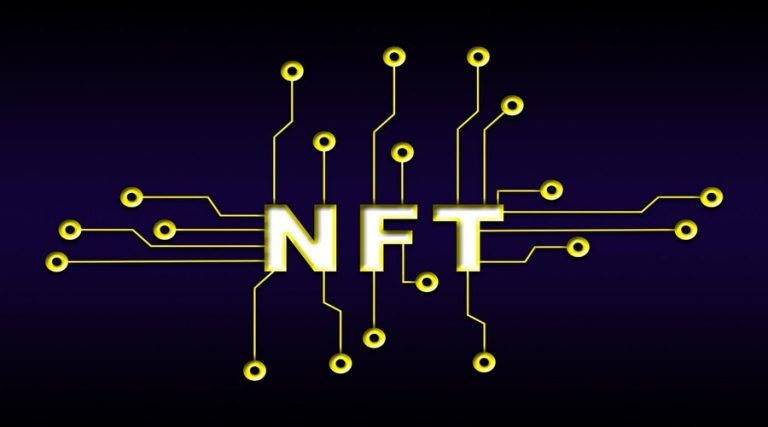
Regulatory Challenges and Compliance in Blockchain Security

Blockchain technology has gained significant attention and adoption in recent years due to its decentralized and immutable nature. It has the potential to revolutionize various industries, including finance, supply chain management, healthcare, and more. However, along with the opportunities, the implementation of blockchain also brings several regulatory challenges and the need for compliance measures to ensure security and trust in the system. In this article, we will explore the regulatory challenges faced by blockchain security and the importance of compliance in this context.
Understanding Blockchain Security
Before delving into the regulatory challenges, it is crucial to understand the fundamentals of blockchain security. Blockchain is a distributed ledger technology that records transactions across multiple nodes, making it difficult for any single entity to control or manipulate the data. The security of the blockchain primarily relies on cryptography, consensus algorithms, and decentralized network architecture.
Importance of Regulatory Compliance in Blockchain Security
Regulatory compliance plays a pivotal role in ensuring the integrity, transparency, and accountability of blockchain systems. As blockchain technology evolves, regulators and policymakers are striving to establish frameworks and guidelines that address the unique security and privacy concerns associated with this technology. Compliance measures not only safeguard the interests of users and stakeholders but also foster trust in the blockchain ecosystem.
Regulatory Challenges in Blockchain Security
1. Lack of Standardization
One of the significant challenges in blockchain security is the lack of standardized regulations and frameworks across different jurisdictions. Due to the decentralized nature of blockchain, it becomes difficult to create uniform rules that can be universally applied. The absence of standardization poses challenges for businesses and organizations operating across borders, as they need to comply with varying regulatory requirements.
2. Jurisdictional Issues
Blockchain operates beyond traditional geographical boundaries, which gives rise to jurisdictional challenges. Determining the jurisdiction where a particular transaction or smart contract falls under is a complex task. Different countries may have different legal and regulatory frameworks, which can create confusion and legal uncertainties. Resolving jurisdictional issues is crucial for effective regulatory compliance in blockchain security.
3. Data Privacy and Protection
Blockchain’s inherent transparency and immutability raise concerns regarding data privacy and protection. While blockchain provides a secure and tamper-resistant platform, it also exposes certain information to all participants in the network. Striking a balance between transparency and privacy is crucial for regulatory compliance. Additionally, complying with data protection regulations, such as the General Data Protection Regulation (GDPR), becomes challenging in the context of blockchain technology.
4. Anti-Money Laundering (AML) Regulations
Blockchain’s pseudonymous nature and the potential for anonymous transactions have caught the attention of regulators in combating money laundering and illicit activities. Compliance with anti-money laundering regulations poses a significant challenge for businesses operating in the blockchain space. Implementing effective Know Your Customer (KYC) procedures and transaction monitoring systems becomes imperative to comply with AML regulations.
5. Regulatory Ambiguity and Evolving Landscape
The rapidly evolving nature of blockchain technology presents challenges in terms of regulatory ambiguity. As new use cases and applications emerge, regulators struggle to keep up with the pace of innovation. This lack of clarity can hinder compliance efforts for businesses operating in the blockchain space. To address this challenge, regulatory bodies need to proactively engage with industry experts and stay updated on technological advancements.
6. Cross-Border Transactions and Jurisdictional Conflicts
Blockchain’s borderless nature enables cross-border transactions without relying on traditional intermediaries. However, this raises jurisdictional conflicts when it comes to regulatory compliance. Different countries may have varying regulations regarding cryptocurrencies, token offerings, and blockchain-based contracts. Harmonizing regulations and establishing cross-border cooperation mechanisms are necessary to ensure seamless compliance in the global blockchain ecosystem.
7. Interoperability and Integration with Existing Systems
Integrating blockchain technology with existing legacy systems poses significant challenges in terms of compliance. Many organizations have established infrastructures and systems that operate under specific regulations. Adapting these systems to incorporate blockchain while maintaining compliance can be complex. Interoperability standards and frameworks need to be developed to facilitate the integration of blockchain with existing regulatory frameworks.
Compliance Measures in Blockchain Security
To address the regulatory challenges, various compliance measures can be implemented in blockchain security. These measures help mitigate risks and ensure adherence to applicable regulations. Some of the commonly adopted compliance measures include:
1. Know Your Customer (KYC) Procedures
Implementing robust KYC procedures verifies the identity of participants involved in blockchain transactions. This helps prevent fraudulent activities and ensures compliance with anti-money laundering regulations.
2. Transaction Monitoring
Continuous monitoring of blockchain transactions allows for the detection of suspicious or illicit activities. Advanced analytics tools can analyze patterns and anomalies to identify potential risks and facilitate regulatory compliance.
3. Smart Contract Audits
Smart contracts are self-executing agreements coded on the blockchain. Conducting audits of smart contracts helps identify vulnerabilities and ensures compliance with regulatory requirements, particularly in sectors like finance and insurance.
4. Regulatory Reporting
Organizations operating in the blockchain space need to comply with reporting obligations to regulatory bodies. Timely and accurate reporting of transactions, suspicious activities, and other regulatory requirements is crucial for maintaining compliance.
5. Auditing and Regulatory Oversight
Blockchain security providers play a crucial role in conducting audits and providing regulatory oversight. These providers help ensure compliance with relevant regulations and industry best practices. Audits verify the integrity and security of blockchain systems, helping organizations identify vulnerabilities and address them proactively.
6. Education and Awareness Programs
Given the evolving regulatory landscape, education and awareness programs are essential for promoting compliance in blockchain security. Industry associations, regulatory bodies, and technology providers should collaborate to educate businesses and individuals about compliance requirements, best practices, and potential risks associated with blockchain technology. Increased awareness leads to better compliance practices and a more secure blockchain ecosystem.
7. Regulatory Sandboxes and Pilot Programs
Regulatory sandboxes and pilot programs allow businesses to test innovative blockchain solutions within a controlled environment. These initiatives provide a platform for collaboration between regulators and industry participants, enabling the development of compliant and secure blockchain applications. Sandboxes allow for real-world testing while maintaining regulatory oversight and addressing potential risks.
8. Secure Key Management
Effective key management is essential for ensuring the security and compliance of blockchain systems. Blockchain security providers focus on implementing secure key storage and management practices. This includes encryption, multi-factor authentication, and hardware security modules (HSMs) to protect private keys. Robust key management processes minimize the risk of unauthorized access and ensure compliance with data protection regulations.
9. Immutable Audit Trails
Blockchain’s immutability provides a valuable feature for compliance purposes. Audit trails recorded on the blockchain can serve as transparent and tamper-evident records of transactions, data exchanges, and system activities. These immutable audit trails facilitate compliance audits and investigations, enabling regulators to verify the integrity of transactions and identify any potential irregularities.
10. Tokenization and Regulatory Compliance
Tokenization refers to the representation of real-world assets or rights on the blockchain through digital tokens. Compliance considerations arise when tokenizing assets, as regulatory frameworks may apply to specific asset classes. For example, security tokens may be subject to securities regulations, while utility tokens could fall under regulations governing consumer protection. Compliance measures need to be implemented to ensure proper tokenization and adherence to applicable regulations.
The Role of Blockchain Security Providers
Given the complex regulatory landscape, organizations often seek assistance from specialized blockchain security providers. These providers offer comprehensive solutions that address security vulnerabilities and ensure compliance with regulatory requirements. They help businesses navigate the intricacies of blockchain security while keeping up with evolving regulations.
1. Continuous Research and Development
Blockchain security providers must invest in continuous research and development to stay ahead of evolving threats and regulatory requirements. They need to develop innovative solutions that address new challenges while complying with emerging regulations. Collaboration with academic institutions, technology partners, and industry experts can foster research and development initiatives in blockchain security.
2. Legal and Compliance Expertise
Blockchain security providers should have a deep understanding of legal and compliance frameworks related to blockchain technology. They should employ experts who can navigate the complex regulatory landscape and provide guidance to businesses seeking compliance in their blockchain operations. This expertise helps organizations stay updated with regulatory changes and ensures compliance in their blockchain initiatives.
Collaborating with Regulatory Bodies
To overcome regulatory challenges, collaboration between blockchain industry stakeholders and regulatory bodies is essential. An ongoing dialogue helps regulators gain a deeper understanding of the technology, its potential, and associated risks. Similarly, industry players can provide valuable insights to shape regulatory frameworks that strike a balance between innovation and security.
Future Trends and Predictions
As blockchain technology continues to evolve, regulatory frameworks will likely adapt to address emerging challenges and opportunities. We can expect increased collaboration between regulators, industry players, and technology innovators to develop robust compliance measures. Moreover, advancements in privacy-enhancing technologies and decentralized identity solutions may alleviate concerns related to data privacy and protection.
Conclusion
Blockchain security faces regulatory challenges that require careful consideration and compliance measures. Establishing standardized regulations, addressing jurisdictional issues, ensuring data privacy, and complying with anti-money laundering regulations are crucial aspects of blockchain security. By implementing compliance measures and collaborating with regulatory bodies, the blockchain ecosystem can flourish while maintaining trust and security. As the technology continues to advance, it is essential for businesses to prioritize regulatory compliance and embrace the opportunities that blockchain brings.
Victoria spent the last year and a half I have been working for coinjet.info, a cryptocurrency news site, covering all breaking news content.


